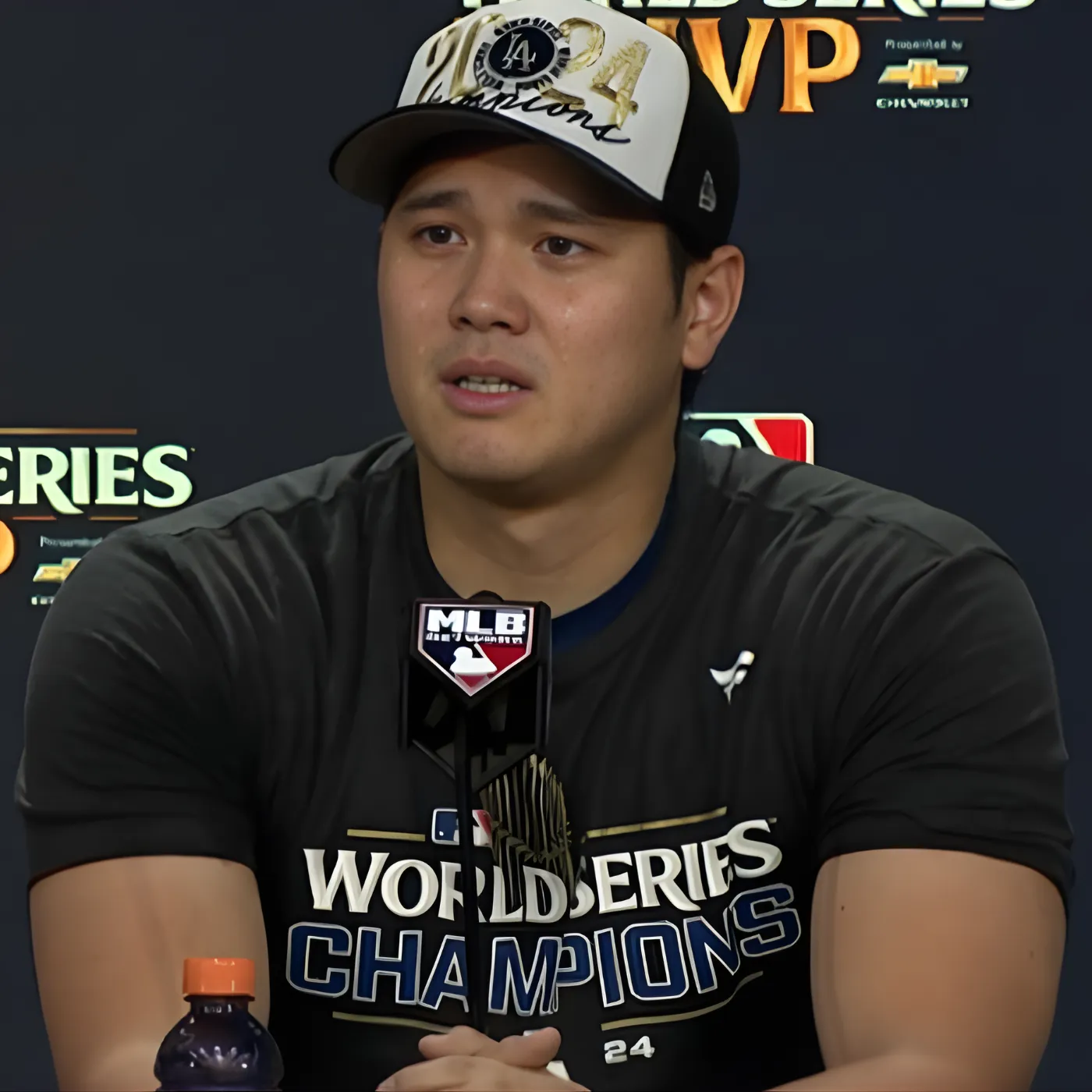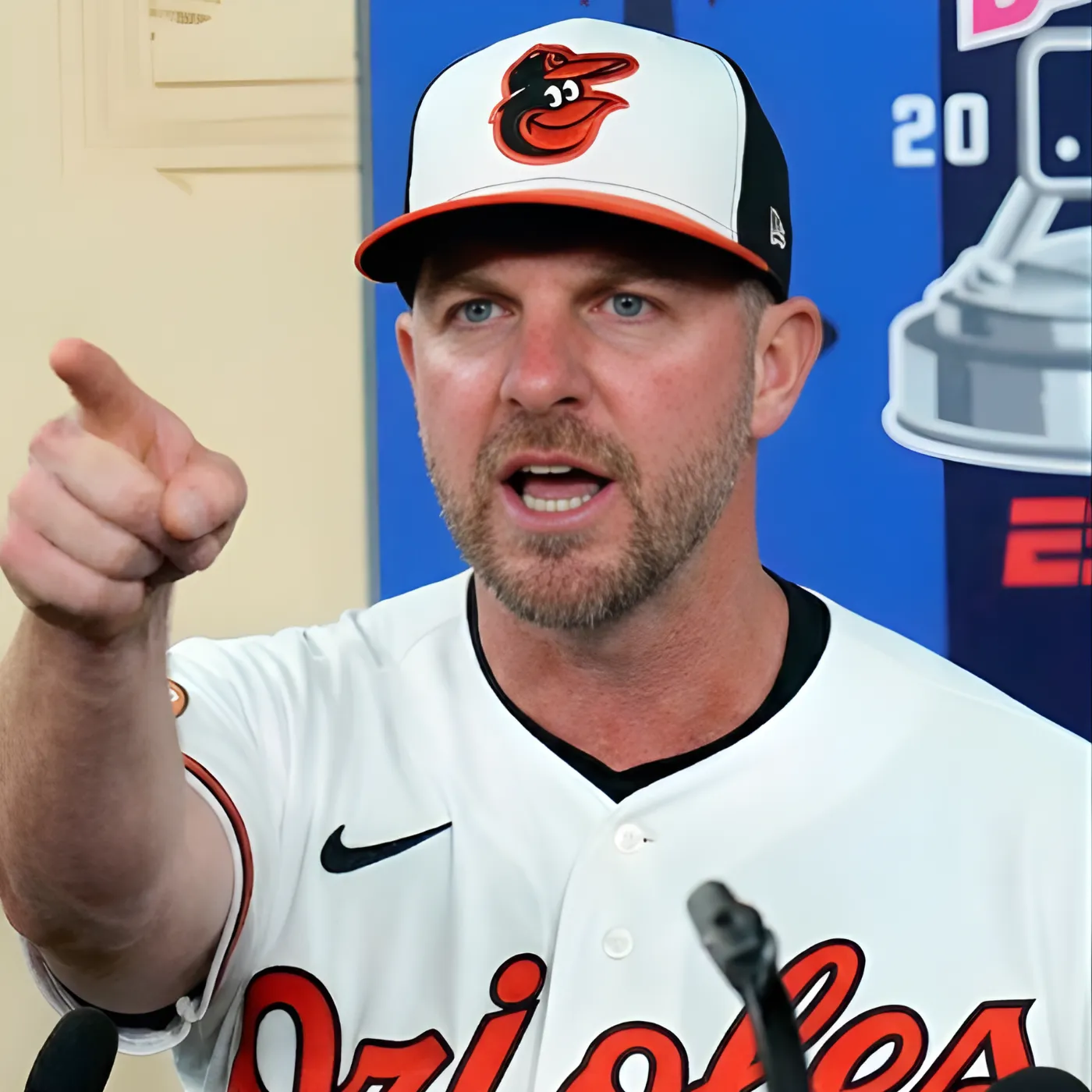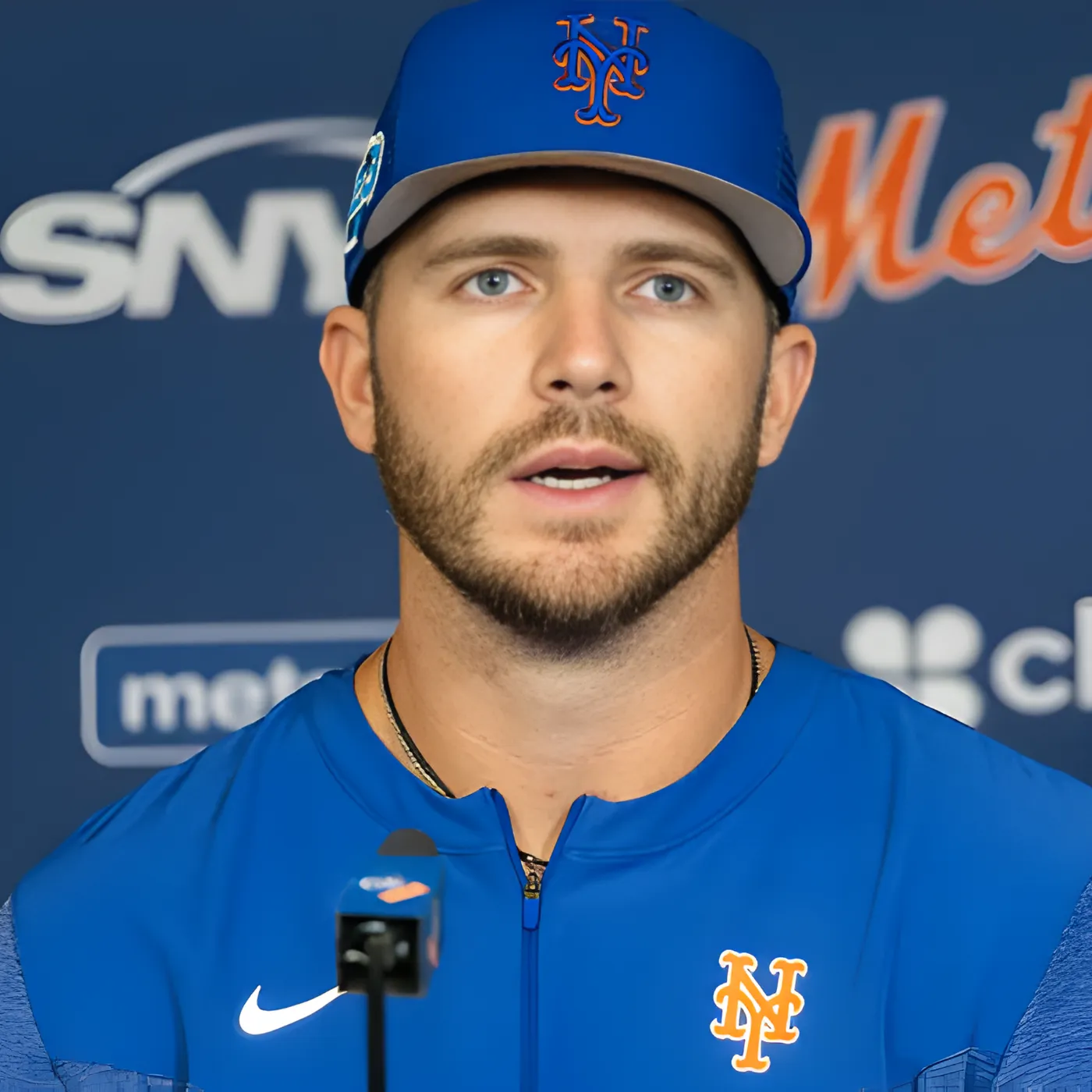
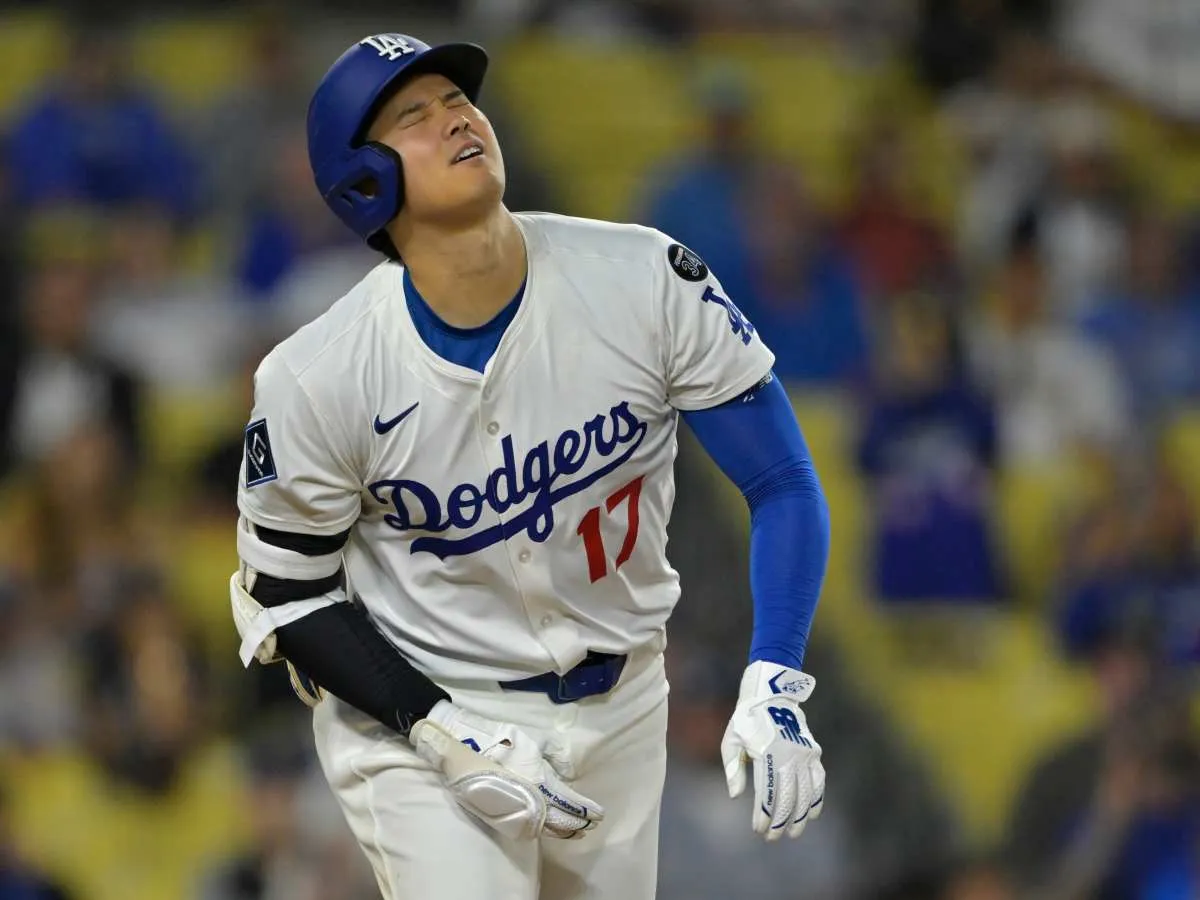
Ohtani Gets Hit — And Now the Dodgers-Padres Rivalry Is Out of Control
The sun was still setting over Petco Park when it happened. A crack of leather, a stunned crowd, and Shohei Ohtani, the face of Major League Baseball and the Los Angeles Dodgers’ most celebrated offseason acquisition, staggered after taking a fastball to the ribs. It wasn’t just any pitch — it was a message. And that message, loud and clear, has now ignited one of the most combustible rivalries in professional sports: Dodgers vs. Padres.
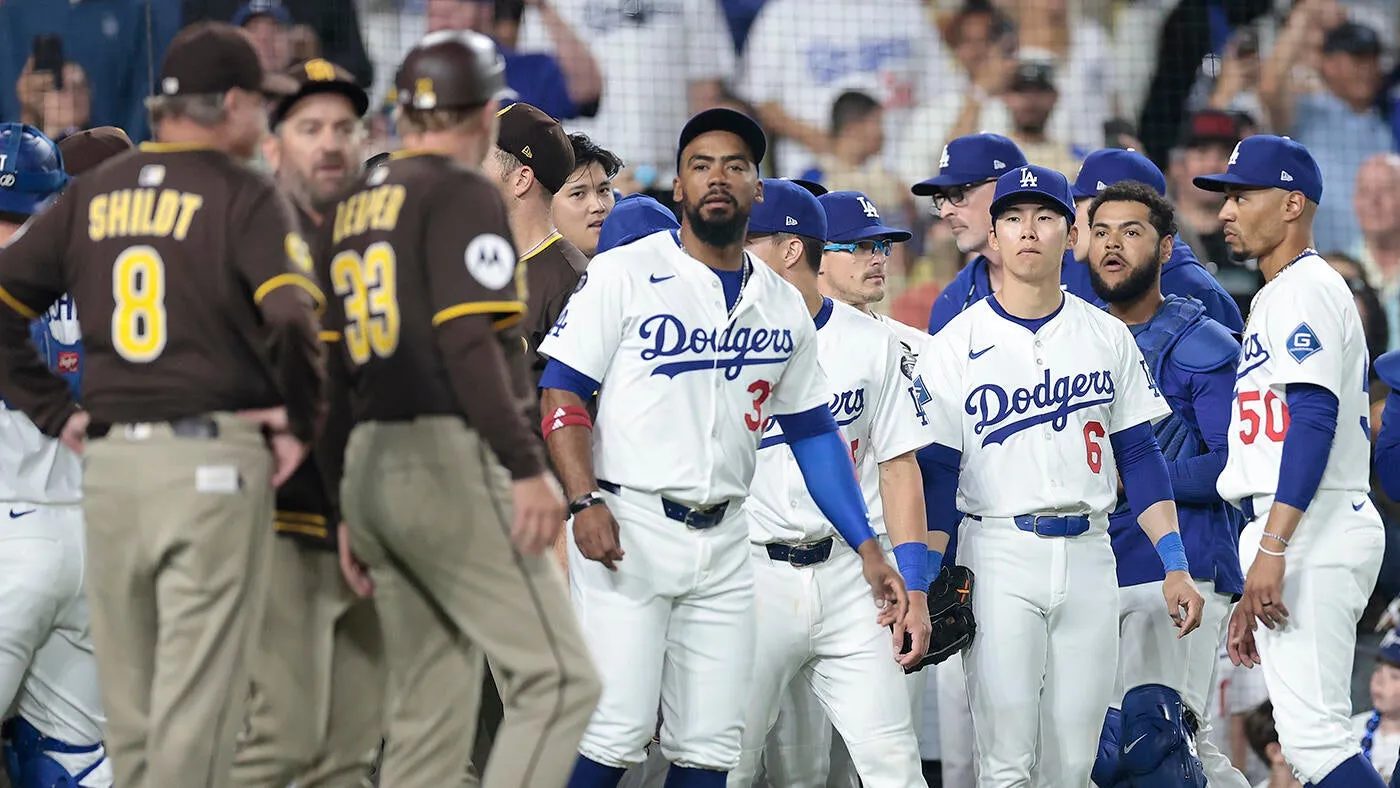
A Rivalry Fueled by Ambition and Ego
The Los Angeles Dodgers and the San Diego Padres have always had a simmering tension. The Dodgers, baseball’s blue-blooded franchise from Hollywood, carry themselves like royalty. Their payroll is massive, their stars are plentiful, and their legacy is steeped in tradition. Meanwhile, the Padres — long in the Dodgers’ shadow — have been clawing, inch by inch, toward legitimacy and dominance.
But what once was a casual SoCal competition has morphed into a dangerous cocktail of jealousy, retaliation, and ego. With Ohtani now in the picture, the dynamic has changed entirely.
The Hit That Changed Everything
In the top of the sixth inning, Ohtani stepped into the batter’s box. The score was tight, the energy was high, and the crowd was on edge. Padres pitcher Luis García, typically known for control and precision, let a 97 mph fastball ride in too far. It drilled Ohtani on the right side — hard enough that even the usually stoic superstar grimaced and dropped his bat.
The stadium fell silent for a breath. Then came the boos — some from Dodgers fans in attendance, but more notably from Padres faithful who knew immediately what the pitch meant: things were about to escalate.
Dodgers manager Dave Roberts stormed the field, furious. Padres skipper Mike Shildt tried to downplay the incident as “unintentional,” but the tension was undeniable. The umpires convened. No one was ejected. But everyone watching knew: this was just the beginning.
Ohtani’s Symbolic Weight
Shohei Ohtani is not just a ballplayer — he’s a global brand. With his groundbreaking two-way play, he has captivated audiences from Tokyo to Los Angeles, injecting MLB with a new wave of international interest. For the Dodgers to land him in a record-setting $700 million deal, it wasn’t just a baseball coup — it was a cultural moment.
So when Ohtani was hit, it wasn’t just one man taking a pitch — it was a statement against what he represents: money, success, hype, and, more controversially, dominance that threatens to leave everyone else behind.
For the Padres — a team that had once courted Ohtani but came up short — the hit has deeper symbolism. Whether or not García intended to hit him, the act landed like a shot across the bow.
History of the Feud: A Powder Keg Years in the Making
While many point to this latest incident as the tipping point, the reality is the Dodgers-Padres feud has been growing for years. It began with snide remarks in press conferences and escalated to bench-clearing brawls. In 2021, there were fireworks when Manny Machado exchanged words with Dodgers pitchers. In 2022, Fernando Tatís Jr. was involved in controversy around bat flips and post-homer celebrations.
Then came the 2023 postseason, when the Padres upset the Dodgers in the NLDS, flipping the script on years of domination. It wasn’t just a win; it was a warning: the Padres were no longer just “that other California team.” They were hungry, brash, and no longer scared.
An Eye for an Eye? Dodgers Respond Swiftly
The bottom of the seventh brought an answer. Dodgers reliever Brusdar Graterol, throwing high heat, missed the strike zone by several feet — his pitch sailing behind Xander Bogaerts. Both dugouts stirred. Words were exchanged. The crowd roared. The umpires gathered again.
Graterol wasn’t tossed, but his message was received. This wasn’t over.
And it still isn’t.
Media Frenzy and Fan Divide
By the next morning, sports talk shows were on fire. Headlines screamed: “Did the Padres Go Too Far?”, “Ohtani Hit: Coincidence or Target?”, and “Baseball’s Best Rivalry Just Exploded.” Twitter (or “X,” as Elon Musk insists it be called) was awash in heated debate, with analysts, former players, and fans picking sides.
Dodgers fans saw it as a clear provocation. Padres fans insisted Ohtani was crowding the plate. Neutral observers knew better: this was about respect and power.
Clubhouse Reactions: Tensions Run Deep
In the locker room post-game, Ohtani was gracious — but firm. “I’m okay,” he said through a translator. “But I hope we all remember what this game is about. Competing hard, not hurting people.”
Still, his Dodgers teammates weren’t quite as diplomatic. Freddie Freeman called it “gutless,” while Mookie Betts said, “We’ve got long memories. Real long.”
Padres catcher Luis Campusano, when asked if the pitch was planned, smirked: “Sometimes the ball gets away. Sometimes it doesn’t.”
The cold war between these clubs has turned hot.
The League’s Role — And Its Silence
Major League Baseball has long loved its traditions — beanballs, rivalries, and the unwritten rules that govern clubhouse justice. But in an era of globalization and increased media scrutiny, the league can no longer ignore what these escalations mean for player safety and brand integrity.
Yet, as of this writing, MLB has not issued suspensions or fines. Some see this as tacit approval. Others believe Commissioner Rob Manfred is weighing how much drama benefits ratings — and how much risks damaging relationships with stars like Ohtani, who are critical to MLB’s international expansion.
Looking Ahead: Fireworks on the Horizon
The Dodgers and Padres are scheduled to face off six more times this season, including a highly anticipated series in late July that’s already being dubbed “The Rematch.”
Ticket prices are soaring. Security is being increased. Players are being told to keep their heads on a swivel.
More importantly, every at-bat, every mound visit, and every stare from the dugout will now be analyzed through a new lens: one of suspicion, hostility, and high drama.
Will the Dodgers retaliate again? Will the Padres continue to push boundaries? And what role will Ohtani — the accidental lightning rod — play in how it all unfolds?
The Human Cost Beneath the Drama
Lost in the highlight reels and hot takes is the human element. Ohtani, always composed and professional, is still a man — not a meme. Being hit by a pitch, especially one loaded with symbolic weight, affects more than just the scoreboard.
There’s bruising — physical and emotional — that lingers. In Japan, where Ohtani is revered as a near-mythic figure, the incident has sparked outrage. Local broadcasters called it “disrespectful to the game,” while fans flooded social media with concern and anger.
For Ohtani, this may be his first real taste of MLB’s dark side — where rivalries go beyond banter and into real, tangible danger.
Baseball’s Villains and Heroes Are Evolving
The beauty of baseball has always been its dualities. Heroes rise, villains emerge, and fans pick sides. But rarely has the line been so blurred. Is García the villain, or just a competitor who lost control? Is Graterol the enforcer, or a risk to the sport’s integrity? Is Ohtani a victim — or a symbol too big for his own good?

This is no longer just about one pitch. This is about identity, power, and pride.
Conclusion: The Line Has Been Crossed
With one pitch, everything changed. Shohei Ohtani got hit, and now the Dodgers-Padres rivalry has evolved from regional feud to national spectacle.
Baseball, at its core, is a game. But with emotions boiling, legacies at stake, and millions watching, it’s clear: this game is about more than stats and standings. It’s about respect, dominance, and how far one team will go to defend its name.
And as long as Ohtani stands at the plate, staring down Padres pitchers with that quiet intensity, everyone will be watching — waiting for the next chapter in a rivalry that has officially spiraled out of control.
Related News
